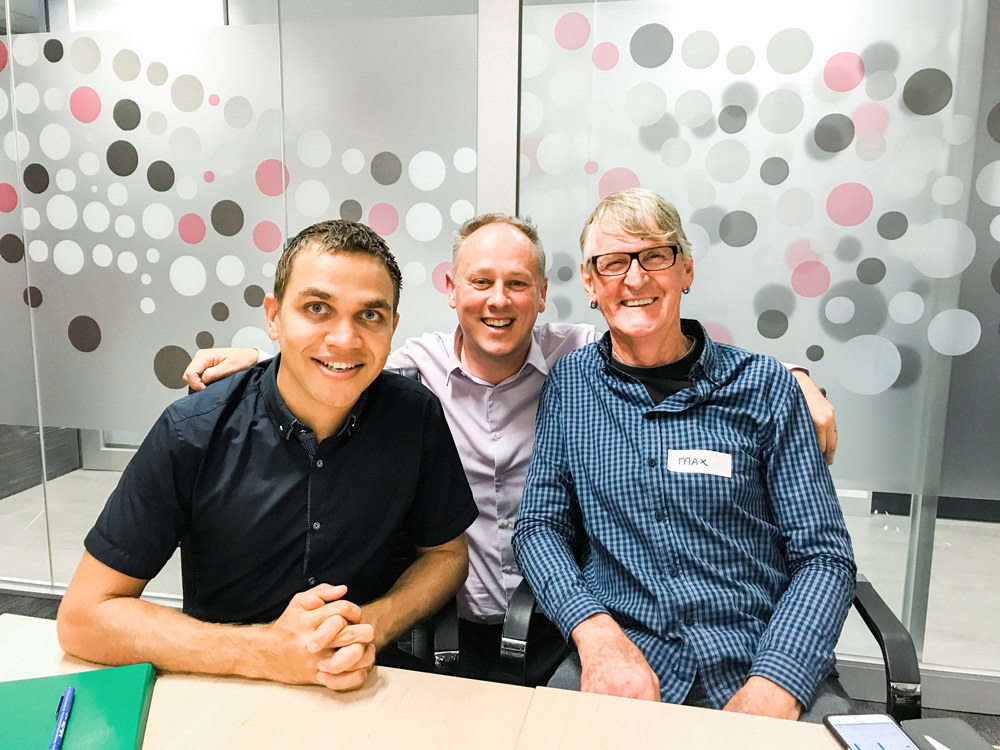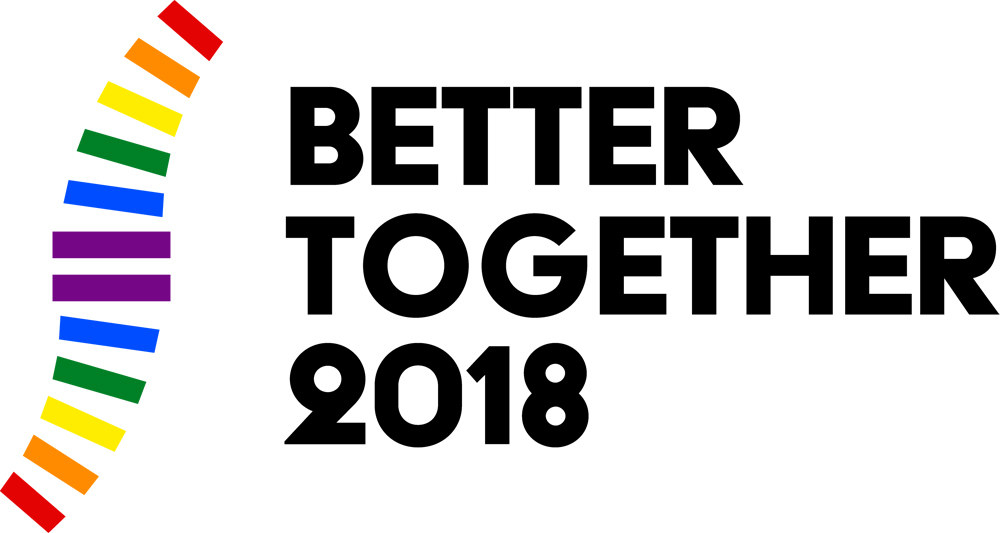In September last year, two people who were instrumental in the early days of Australia's same-sex marriage movement sat in a Collingwood cafe, talking about the LGBTI community's next move.

In 2004 two couples – Jason and Adrian Tuazon McCheyne, and Jacqui Tomlins and Sarah Nichols – sought to have their Canadian marriages recognised in Australia.
It provoked a response from then prime minister John Howard, who amended the Marriage Act to explicitly ban same-sex marriage. At the same time Australian Marriage Equality was founded, and the debate continues to this day.
The couples remained active in LGBTI rights campaigning, and also remained friends. So when Jason Tuazon-McCheyne, frustrated by the inaction and negativity of 2016, had a big idea for Australia's LGBTI community, he turned to Tomlins.
"She was the first person I wanted to sound out the idea to: where to now?" he told BuzzFeed News.
"We're losing in the public sphere, in the media sphere, in the political sphere, we're losing the fights that we have. We haven't gotten marriage over the line. Safe Schools has been destroyed.
"It's time we work more closely together – not reinvent the wheel, but get together and realise what is important to each of the parties involved."
Fast forward six months, and this week will see the launch of The Equality Project, an ambitious national organisation bringing together advocacy groups to strengthen the LGBTI community against media and political attacks.

After that first conversation in Collingwood, Jason Tuazon-McCheyne went on to speak to more than 400 people across Australia and overseas about the project. He established a working group of around 25 people, from all corners of the community.
The network has gained backing from a wide array of groups and people, including the Asian Australian Alliance, Just Equal, Transgender Victoria, Democracy in Colour and Deaf Australia. Board members from pride festivals Mardi Gras and Midsumma are involved. Recently established LGBTI faith group Equal Voices is also on board.
Jason Tuazon-McCheyne stressed The Equality Project is not intended to act as a peak body: "It's not an umbrella organisation, it's a serving one."
The Equality Project will host a national conference, Better Together, in January next year. The aim is to attract 1000 attendees, and answer a central question: how can we create a world in which LGBTIQ people are full citizens?
"We'll have international speakers on domestic violence, intersex visibility, and we've got some strong, pro-religious figures already locked in," Jason Tuazon-McCheyne said.
"A whole stack of people don't know each other, organisations haven't had a chance to work with each other. We can bring equity where it's missing."

Mark Nannup, an Aboriginal man from Meekatharra in Western Australia, will be one of five speakers at the Melbourne launch on Thursday evening.
He hopes the Equality Project can play a part in a central goal of his, which is bringing LGBTI activism and resources into rural and remote Indigenous communities.
"There's a big lack of information about Aboriginal and Torres Strait Islander people and being gay," he told BuzzFeed News.
Nannup said a one size fits all approach to helping young LGBTI people come out does not translate to Aboriginal culture, where advice and support has to be tailored to Indigenous communities.
"You come to the point where you think 'Oh shit, I'm gay'," he said. "It's not just coming from our community, but to proceed with law and culture, it's a struggle. The sense of no longer being a part of that, or being distant from it, is hard."
Nannup organised Indigenous elders to lead the Midsumma pride march for the first time earlier this year. He is also on the Victorian NAIDOC committee, as well as working and studying at the Victorian College of the Arts.
He hopes that extending his advocacy into remote communities will empower other young Indigenous people to step up and take on leadership roles.
"A lot of Aboriginal and Torres Strait Islander people are still too shy, or not really known for walking up and being in a room full of people and talking about all these policies and politics," he said.
"I'm just trying to create a sense of breaking that stereotype, to go out there and confront and speak about these things and educate each other on what's happening."

The endeavour will also include straight allies. Melbourne man Ramas McRae will speak at the launch about similarities between LGBTI people and other communities, and the importance of solidarity.
"A single stick is easy to break, but a whole bundle – almost impossible," McRae told BuzzFeed News. "Although it seems cliché, it is so true."
McRae drew parallels between his own deaf community and the LGBTI community when it comes to equal rights and inclusion.
"I am straight and I have a lovely wife as well as a young son," he said. "But I understand what it is like to face barriers to access. For example, cinemas don’t provide closed captions for movie screenings, very few companies [and] businesses are deaf friendly."
Tuazon-McCheyne said The Equality Project was borne from a position of "pride and determination" – not a downtrodden or defeatist attitude.
"What brings us together is oppression and discrimination, but we are a strong resilient bunch of people and we want to build each other up," he said.
"None of the communities participating in this conference are full citizens at this time. The aim is for a world in which all of them are."
